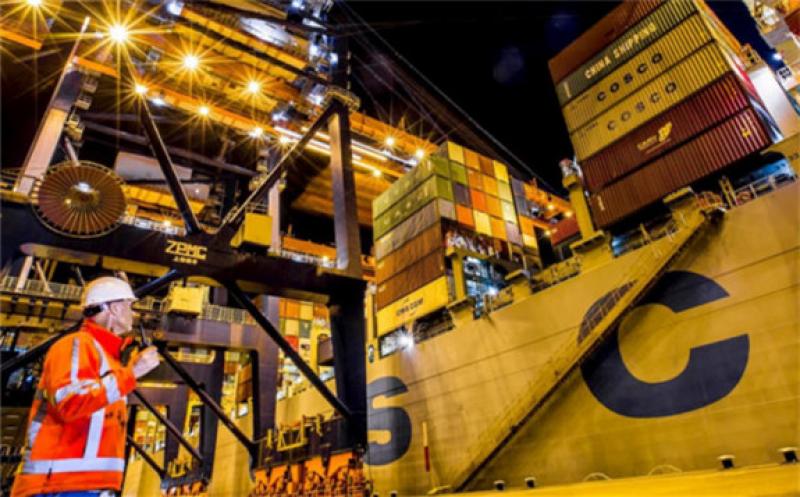The first high frequency decentralised energy market has been demonstrated on the Port of Rotterdam’s microgrid.

The new microgrid electricity trading platform was jointly developed by S&P Global Platts and Blocklab, the Port of Rotterdam’s blockchain subsidiary. In the two months of operation to date, it has brought both reduced electricity costs and increased renewables use.
The platform named Distro draws on both artificial intelligence and blockchain’s distributed ledger technology to enable commercial energy consumers in the port to actively trade renewable energy derived from solar and battery storage to manage their power consumption.
The trial, claimed to be the world’s first high frequency decentralised energy market, commenced in August 2020 in the Port of Rotterdam’s Innovation Dock. The platform provides every market participant with an AI enabled ‘energy trading agent’ software tool that learns their energy needs, preferences and behaviours.
The trial provided the participating buyers and sellers with a 48 hour forward market with access to dynamic local energy prices reflecting the supply and demand balances. With the technology, the energy consumers reduced their costs by 11%, while the renewable producers saw a 14% improvement in their revenues.
The trial also demonstrated 92% consumption of on-site solar generation, overcoming historic wastages, and a 20% increase in battery storage return on investment.
“Working with the Port of Rotterdam and S&P Global Platts forced us to focus on business reality and meeting industry standards,” said Janjoost Jullens, director, BlockLab Rotterdam. “We are very proud we can now equip the emerging decentralised power markets with the tools of professional electricity traders, driving up their returns on renewables and minimizing infrastructure investments needed.”
Blockchain smart contracts
The platform draws on the security offered by blockchain smart contracts, which uphold market rules, validate transactions and manage identities to ensure reliability and anonymity in the dynamic trading environment, according to a statement.
ABN AMRO’s Banking-as-a Service sandbox was utilised to provide a seamless banking environment where virtual accounts were attributed to users and executed transfers as instructed by the marketplace.
The Port of Rotterdam Authority, as the owner of the Innovation Dock, is also a beneficiary of the initiative. With the reduced burden on the regular electricity grid enabled by the ‘micro-market’ trading, the capacity of the connection to the network can be reduced saving costs by 25%.
“The successful completion of our trial is a win-win in encouraging fair and transparent prices as well as cost efficient consumption of renewable energy for our tenants,” commented Nico van Dooren, Director New Business Development & Portfolio, Port of Rotterdam. “We are excited about the prospects of scaling this solution and the meaningful contribution it can make towards helping The Port of Rotterdam become carbon neutral by 2050.”
The next step is to prepare Distro for commercial use. Once fully scaled across the Port’s activities, it is anticipated to support businesses in delivering carbon reduction saving of up to 30 million tonnes.
The positive results of the pilot also validate the technical and commercial potential for Distro to be deployed in other locations around the world, says the statement.